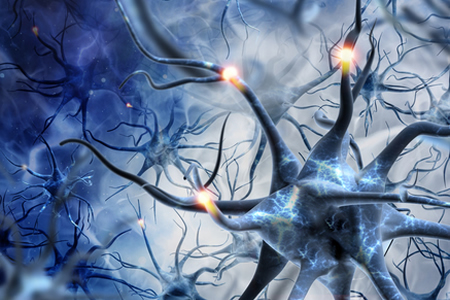It may be possible to treat anxiety and alcohol use disorder in adults using the gene-editing tool, CRISPR-dCas9. Researchers at the University of Illinois, Chicago have reported successful results using CRISPR-dCas9 in studies of rat models of anxiety and alcohol abuse disorder.
Currently, around 15 million adults in the United States – around 7% of the population – suffer from social anxiety disorder, many of whom resort to alcohol and drink excessively from an early age to cope with their symptoms. Excessive drinking by adolescents can cause epigenetic changes in the brain which makes them more susceptible to anxiety and alcohol abuse in adulthood.
The researchers previously investigated the effects of binge drinking by adolescents and found that brain chemistry is altered, specifically in the enhancer region of the ARC gene. The ARC gene encodes a plasticity protein, activity-regulated cytoskeleton-associated protein, which is critical for memory consolidation and is involved in all known forms of synaptic plasticity.
The researchers found that in rodents and humans, binge drinking decreases ARC expression in the amygdala – the part of the brain involved with memory processing, decision making, and emotional responses, such as fear, anxiety, and aggression. The gene also regulates non-selective histone deacetylase (HDAC), which plays an important role in cognitive function.
Following on from their research, the team demonstrated in a study on rodents that it is possible to reverse the epigenetic programming, essentially providing an antidote or factory reset for the brain. The researchers used CRISPR-dCas9 to manipulate histone acetylation and methylation, making genes more or less accessible for activation. The researchers increased histone acetylation of the ARC gene which helps transcription factors to bind to the DNA, and methylation to make it harder for transcription factors to bind to the DNA.
The rats used in the study had been exposed to alcohol during adolescence, equivalent to ages 10-18 years in humans. The researchers measured anxiety in the rats through behavioral testing and alcohol abuse by measuring the amount of alcohol consumed when rats were given a choice between water and various concentrations of alcohol.
The researchers demonstrated ARC expression could be normalized. After treatment, the indicators of anxiety and alcohol consumption decreased. In the second group of rats that had not been exposed to alcohol, CRISPR-dCas9 was used to increase methylation which decreased ARC expression, and indicators of anxiety and alcohol consumption increased.
While there are treatment programs for addiction, they do not address the root causes, which with adolescent drinking is the epigenetic changes in developing brains. “Adolescent binge drinking is a serious public health issue, and this study not only helps us better understand what happens in developing brains when they are exposed to high concentrations of alcohol but more importantly gives us hope that one day, we will have effective treatments for the complex and multifaceted diseases of anxiety and alcohol use disorder,” said Subhash Pandey, senior author of the study.
You can read more about the study in the paper – Targeted epigenomic editing ameliorates adult anxiety and excessive drinking after adolescent alcohol exposure – which was recently published in Science Advances. DOI: 10.1126/sciadv.abn2748
